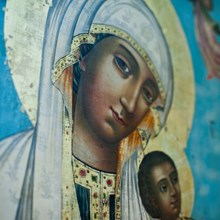The worldwide small-group movement was birthed in South Korea in the mid-1960s. David Cho, the founding pastor of Yoido Full Gospel Church, had become utterly exhausted and was confined to bed rest for two years. He realized that he was acting like Moses in Exodus 18 by performing the ministry on his own. When his male elders refused to help, he asked his women deaconesses to open home groups and apply his sermons, thus launching the modern day cell group explosion. The female-led small groups grew to 19,000 groups, in comparison to 6,000 male-led groups. Cho was convinced that women should play a primary role in small groups.
Another well-known small-group revival was led by John Wesley when he developed an effective small-group system known as the Methodists in the 1700s. It was so monumental that in 1928, Archbishop Davidson wrote, "Wesley practically changed the outlook and even the character of the English nation." What is less known is that Wesley's small-group system was led primarily by women. Wesley's own mother, Susanna, had previously exemplified the effectiveness of small-group ministry by leading a small group in her home that transformed lives and instilled the vision for small groups in both John and Charles.
Of course, Cho and Wesley were only rediscovering the role that women have always played in the New Testament church, especially in small groups. While female leadership might have been new and innovative in Wesley's day—or even for David Cho in the 1960s—it was a common occurrence in the early New Testament church. After all, Christ liberated women and elevated them (Mark 15:41; Luke 23:27; John 20).
Spiritual Gifts to Men and Women
When the church was born on the day of Pentecost, Peter's first sermon portrayed women as full participants in his church. He reminded his hearers,
These men are not drunk, as you suppose. It's only nine in the morning! No, this is what was spoken by the prophet Joel: "In the last days, God says, I will pour out my Spirit on all people. Your sons and daughters will prophesy, your young men will see visions, your old men will dream dreams. Even on my servants, both men and women, I will pour out my Spirit in those days, and they will prophesy" (Acts 2:15-18).
The culture of Peter's day was male-dominated and women were commonly assigned the status of servitude and even treated by some as if they were dogs. Yet the coming of the Spirit made women full participants. Paul goes so far as to make them equal with men in Galatians 3:28, "There is neither Jew nor Greek, slave nor free, male nor female, for you are all one in Christ Jesus." Speaking of this text, Gordon Fee writes,
Indeed, on the basis of this text and its place in the argument of Galatians—where socialized distinctions between people in their relationship to God have been overcome by Christ and the Spirit—one must argue that the new creation has brought in the time when the Spirit's gifting (the Spirit who is responsible for ushering in the new order) should precede roles and structures, which are on a carryover from the old order that is passing away.
This new era or new creation is focused on the Spirit working through both male and female.
The Active Roles of Women
The early house church era belonged to women as much as men. Arthur Patzia, professor of New Testament at Fuller Seminary, writes, "The overall impression from Luke's and Paul's perspective is that women played a significant role in the life, ministry, and leadership of the early church."
We see women in ministry throughout the New Testament. Approximately one-fourth of Paul's co-workers were women. There are a total of 12 women who Paul mentions prominently: Euodia, Julia, Junias, Lydia, Mary, Nympha, Persis, Phoebe, Priscilla, Syntyche, Tryphena, and Tryphosa. And seven of them were instrumental in the house-church movement in Rome: Priscilla, Mary, Junias, Tryphena, Tryphosa, Persis, and Julia.
Various women were house church hosts and leaders. Mary the mother of John Mark was a leader of one of the early Christian groups, her house being used for church meetings (Acts 12:12). Lydia's household served as a gathering place for the early believers in Philippi (Acts 16:12-15, 40). Plus, several "leading women" in Thessalonica responded to the gospel in Acts 17:4, as did other Greek women in Berea (Acts 17:12).
The fact that Nympha hosted one of the house churches shows that women were allowed positions of authority and leadership. Nympha was a person of social standing and wealth who had a large home. Kevin Giles writes that she was probably a widow who owned land or managed a business and was the head of an extended family including blood relations, employees, and slaves.
Phoebe made her house available to the congregation as a meeting place, serving as hostess. It could be that Phoebe had a teaching ministry in the house church in Cenchrea and delivered the letter to the Romans but also read and explained it to the house churches in Rome. Paul says about Phoebe, "I commend to you our sister Phoebe, a servant of the church in Cenchrea. I ask you to receive her in the Lord in a way worthy of the saints and to give her any help she may need from you, for she has been a great help to many people, including me" (Romans 16:1-2).
Prophets, Teachers, and Apostles
In the early church, women were active evangelists, coworkers, patrons, and even apostles. It is virtually certain that Paul refers to the woman Junia as an apostle in Romans 16:7. Some Bibles translate this passage as referring to the male apostle "Junias." But Eldon Jay Epp, an eminent New Testament scholar, has recently done the definitive study on Romans 16:7 in his book Junia: The First Woman Apostle. Consequently, after carefully exegeting the passage, Linda Belleville writes, "Thus the reading of this reference to Junia yields an example of a woman not only functioning as an 'apostle' in the New Testament church but being highly esteemed as such by Paul and his apostolic colleagues."
Women were also prophets. Luke refers to the prophetic ministry of Philip's daughters (Acts 21:8-9). Paul and John also acknowledge the existence of female prophets in the early church. Women prayed and prophesied in public (1 Corinthians 11:5), and Paul writes that a prophet, like an apostle, designated an official role (1 Corinthians 12:28-29).
Priscilla and her husband Aquila became significant leaders of the church in several different locations (Acts 18:18, 26; Romans 16:3; 1 Corinthians 16:19; 2 Timothy 4:19). In 1 Corinthians 16, Paul speaks of Priscilla and Aquila together having a congregation meeting in their home.
Priscilla is a good example of a woman teacher. Four times, Paul and Luke mention Priscilla before her husband, Aquila (Acts 18:18, 26; Romans 16:3; 2 Timothy 4:19). Priscilla's role as teacher emerged when Apollos visited Ephesus. Scripture says, "When Priscilla and Aquila heard him [Apollos], they took him aside and explained the way of God to him more accurately" (Acts 18:24-26). The account shows her teaching role, and she is mentioned before her husband in connection with the instruction of Apollos. Apollos was "well-versed in the Scriptures" (18:24), and so the fact that they explained "the way of God to him more accurately" means they must have had sufficient expertise to gain his acceptance. Michael Green says,
The New Testament tells us of women laboring in evangelism, acting as hostess to the church in their houses, prophesying and speaking in tongues, and acting as deaconesses. This prominence of women continued, as we have seen, in the second century. Sometimes it would be exercised through public speaking, sometimes through martyrdom.
Although the New Testament does not directly designate a specific woman as an elder or bishop, we do find women acting in the kind of leadership functions normally associated with this office. Women exercised the authority of prophets, teachers, and apostolic coworkers. Stanley J. Grenz and Denise Muir Kjesbo write,
Paul readily spoke of women, as well as men, as his coworkers. He never cautioned his recipients to view only the men as possessing authority or being worthy of honor. Rather, his readers were to "submit to … everyone who joins in the work, and labors at it" (1 Corinthians 16:16).
The New Testament paints a clear picture of women's role in ministry in the house to house group ministry that was prevalent in the early church. Some in the modern era, like Wesley and Cho, have rediscovered the value of women in small-group ministry.
As the body of Christ at large allows women to assume their rightful place in Christian ministry, the church will more fully reap the harvest and fulfill the words of Jesus, "The harvest is plentiful but the workers are few. Ask the Lord of the harvest, therefore, to send out workers into his harvest field" (Matthew 9:37-38). Let us elevate women and men, as Jesus did, to work in the harvest. In doing so, we will follow the example of the early church.
—Joel Comiskey is author of 2000 Years of Small Groups: The History of Cell Ministry in the Church and an advisor for SmallGroups.com.
Photo credit: Saint-Petersburg Orthodox Theological Academy/Flickr









